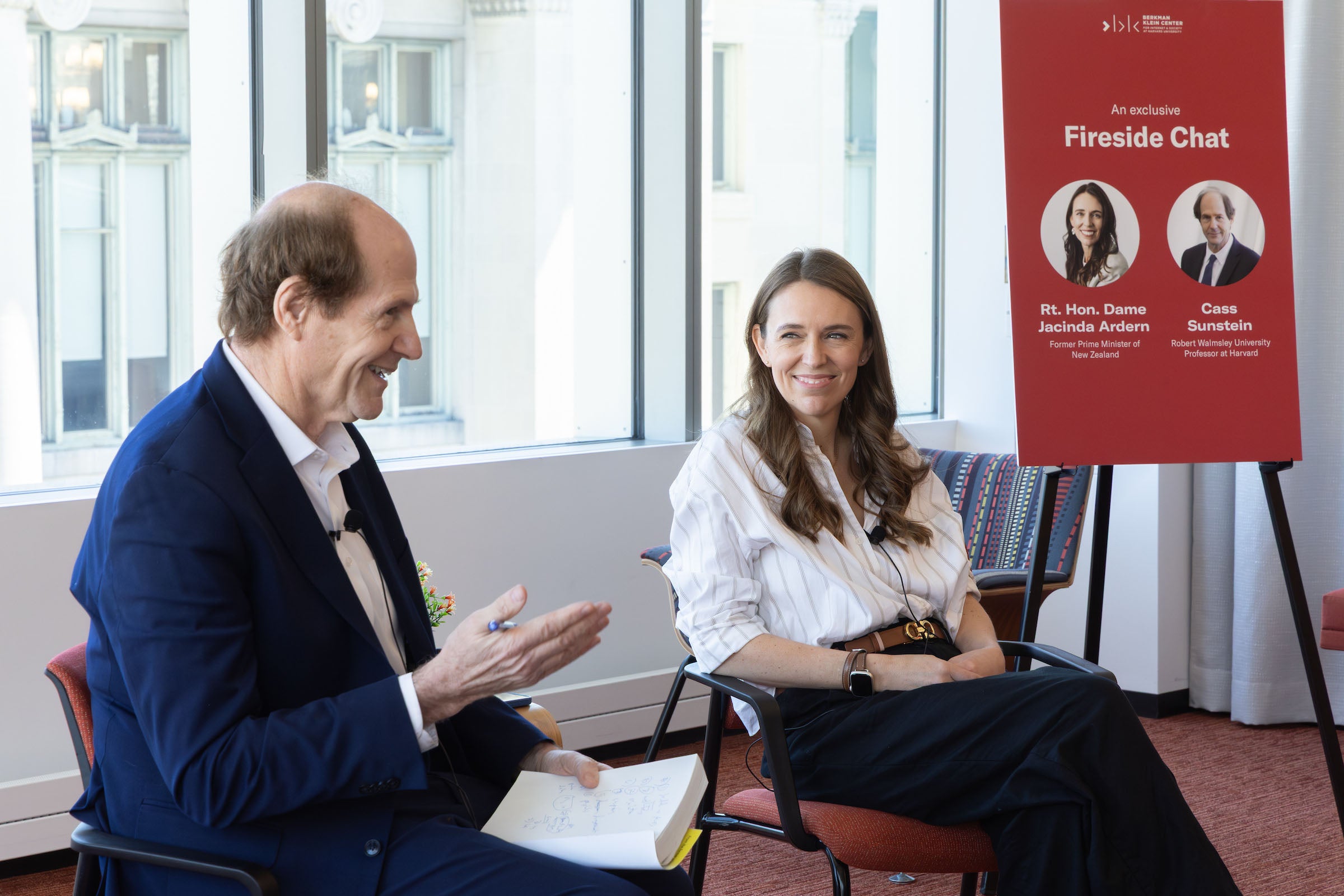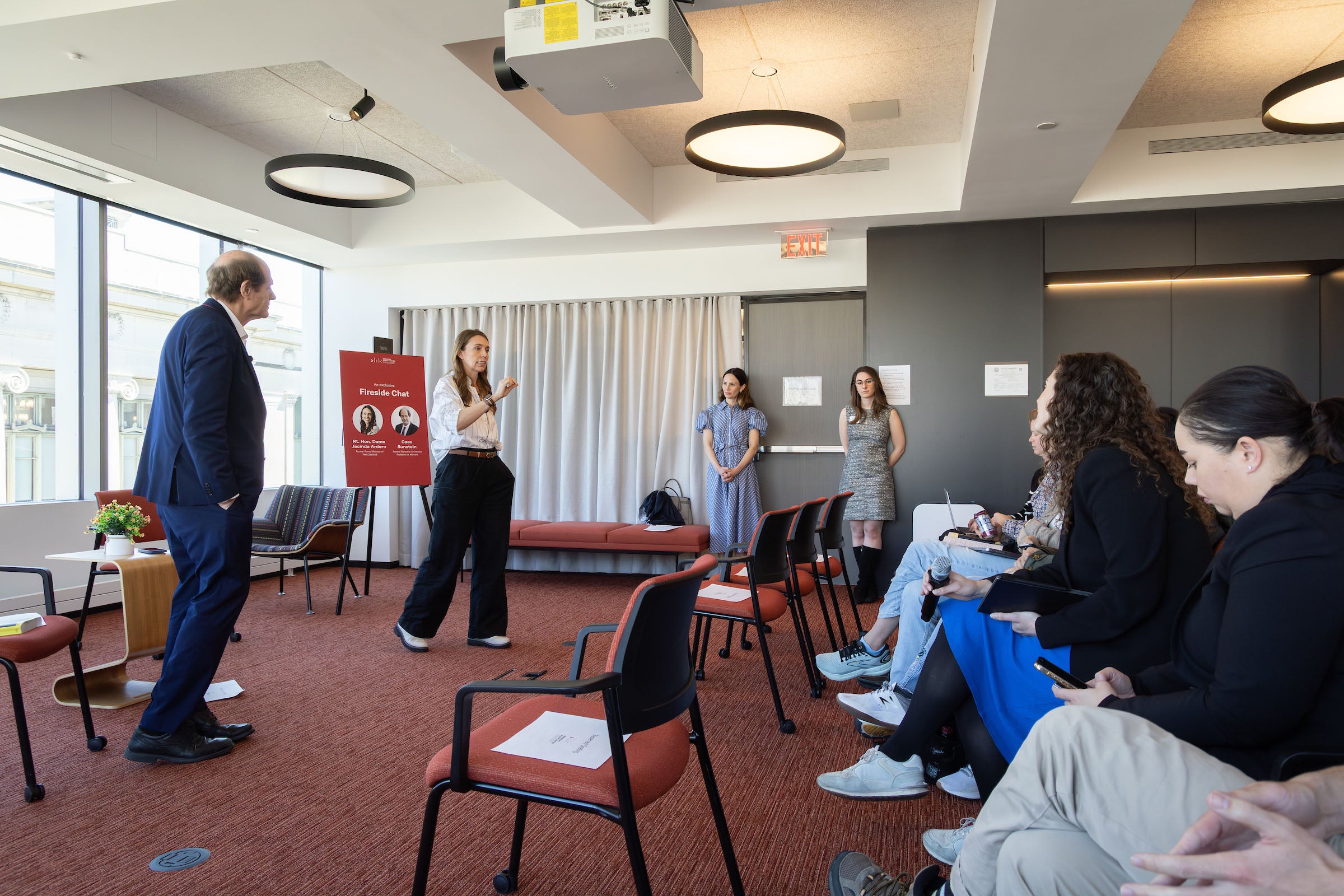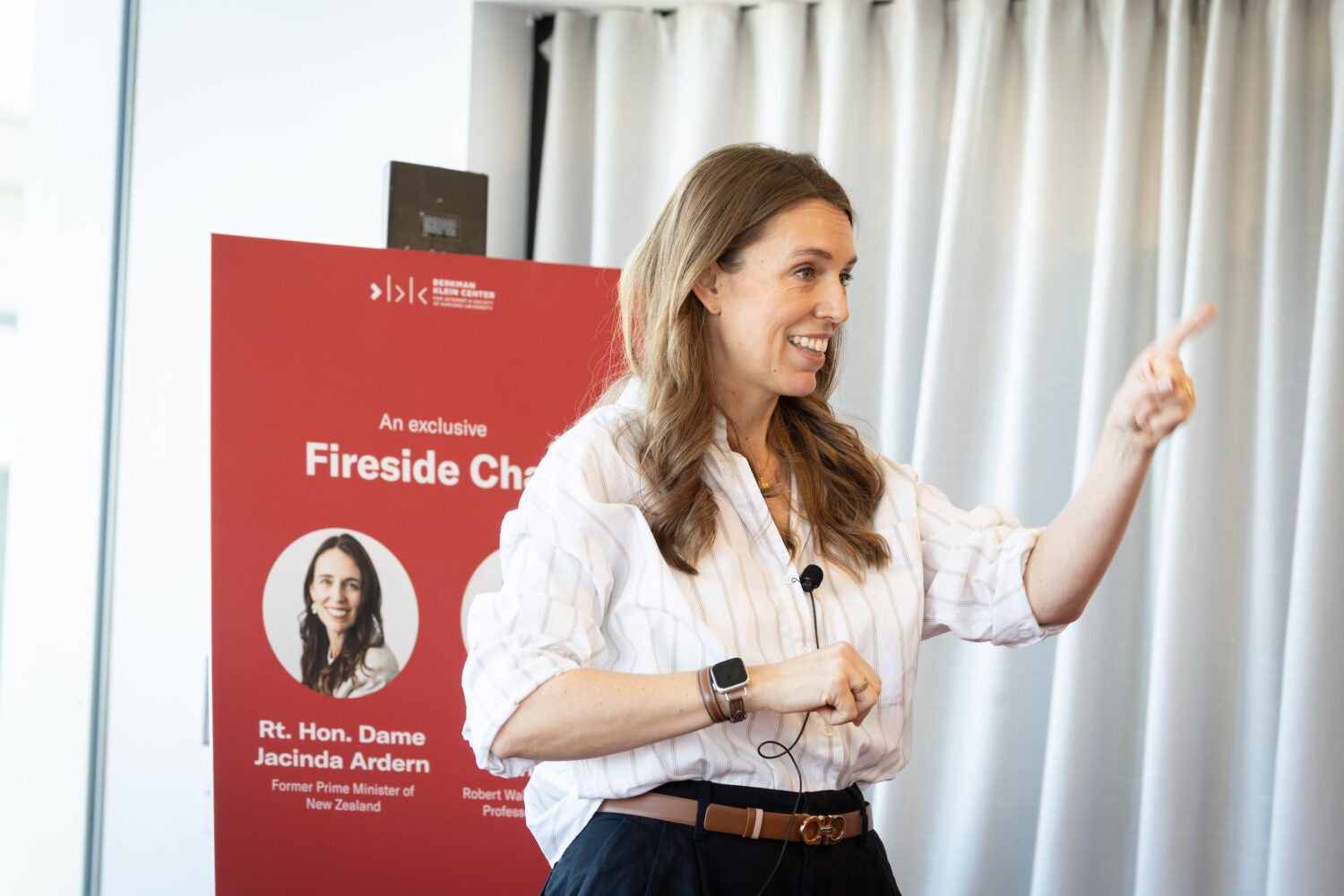At the outset of the COVID-19 pandemic, New Zealand Prime Minister Jacinda Ardern, like other government leaders, had the unenviable job of leading a country through a crisis the world did not even fully understand.
Unlike some leaders elsewhere, though, she managed to do so while generally maintaining the public’s trust and approval, in part by holding daily briefings to share, when possible, what her administration knew and what it didn’t.
“Most leaders in politics assume your No. 1 job is to inspire confidence,” she told students at a recent event at the Berkman Klein Center for Internet & Society. “But in order for people to have confidence in you, they need to also trust you, and, to build trust, you need to be really honest and transparent about the times where you do have an information gap. That’s not weakness.”
Ardern, whose book “A Different Kind of Power” comes out in June, was the Berkman Klein Center’s inaugural Knight Tech Governance Leadership Fellow and a dual fellow at the Harvard Kennedy School in 2023. At the April 14 event, she chatted with Robert Walmsley University Professor Cass R. Sunstein ’78 before taking questions from the audience.
Ardern was prime minister from 2017 to 2023. She said there are generally two kinds of crises in the world: those you can predict and those you can’t. In New Zealand, she said, predictable crises are wildfires, earthquakes, and volcanoes. “Those are the kinds of crises the people of New Zealand expect us to be prepared for and have a plan for,” she said, adding jokingly, “I assure you, New Zealand is a safe place.”

In crises that are harder to predict — such as COVID — she said, “People give you more grace, but it’s still really important what we do with that grace.”
Sunstein said one characteristic of Ardern’s approach to governing during the pandemic reminded him of the late U.S. President Ronald Reagan: her sense of humor. As if to prove the point, she quipped: “I’ve never been compared to Reagan before.”
Sunstein gave the example of Ardern’s decision to exempt from COVID-19 restrictions the Easter Bunny and the Tooth Fairy. Ardern said that was in response to a letter from a child asking if the Easter Bunny would be allowed to work during the lockdown. (Letters from children also prompted her to accelerate a planned ban on single-use plastic bags.)
Ardern said she decided early in her tenure to read and personally respond in some way to all correspondence from children. “I hated the idea of the first experience of a child with their democracy” being a boilerplate reply letter, she said. “That doesn’t feel right.”
One of Ardern’s most innovative initiatives altered her country’s budgeting process. Rather than focus solely on economic indicators, she asked ministers across her government to address three systemic problems: family violence, child poverty, and economic deprivation. The resulting Wellbeing Budget of 2019 included an investment of $1.9 billion in mental health.
Ardern said she tried to govern based on evidence.
“I always wanted to make decisions that were genuinely solving the problem,” she said.
In response to questions about restoring public trust in government institutions and academia, Ardern said, she thought that the pandemic had “amplified” an existing undercurrent of “skepticism, conspiracy theories, and tribalism” and that the media and politicians bore some responsibility for that, since the financial model undergirding most news outlets incentivizes sensational content, which in turn incentivizes politicians to provide such content.

She still thinks “the majority of people want to see values-based politics” but in times of uncertainty, people are fearful, and some politicians play on that by blaming certain groups for the problems people are experiencing, she said.
In times of uncertainty, people are fearful, and some politicians play on that by blaming certain groups for the problems people are experiencing, she said.
“It is much easier to ‘other’ than it is to fundamentally change the system that is broken,” she said. “But I expect more, and you should expect more too. If you lose your expectation that politics can change, if you think this is the way it’s going to be, people stop speaking up and stop calling out the behaviors. Politicians interpret that as indifference or acceptance, and both are dangerous.”
Want to stay up to date with Harvard Law Today? Sign up for our weekly newsletter.
